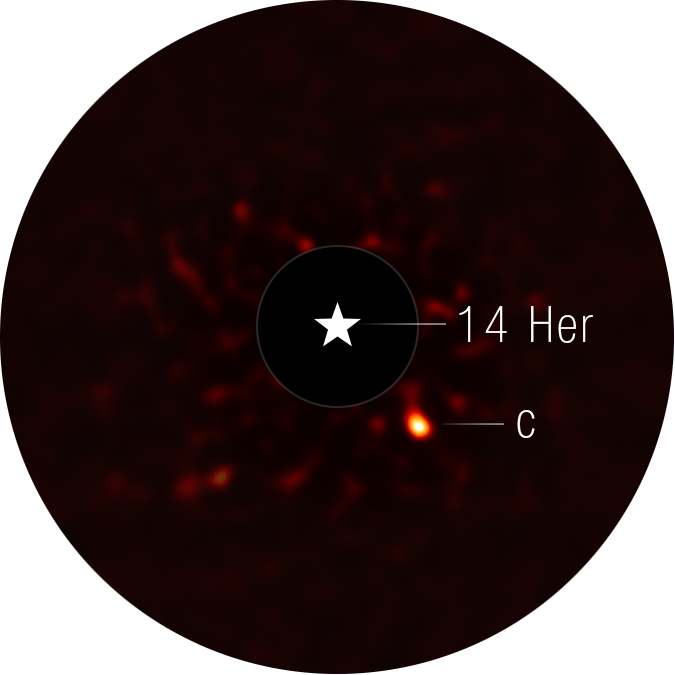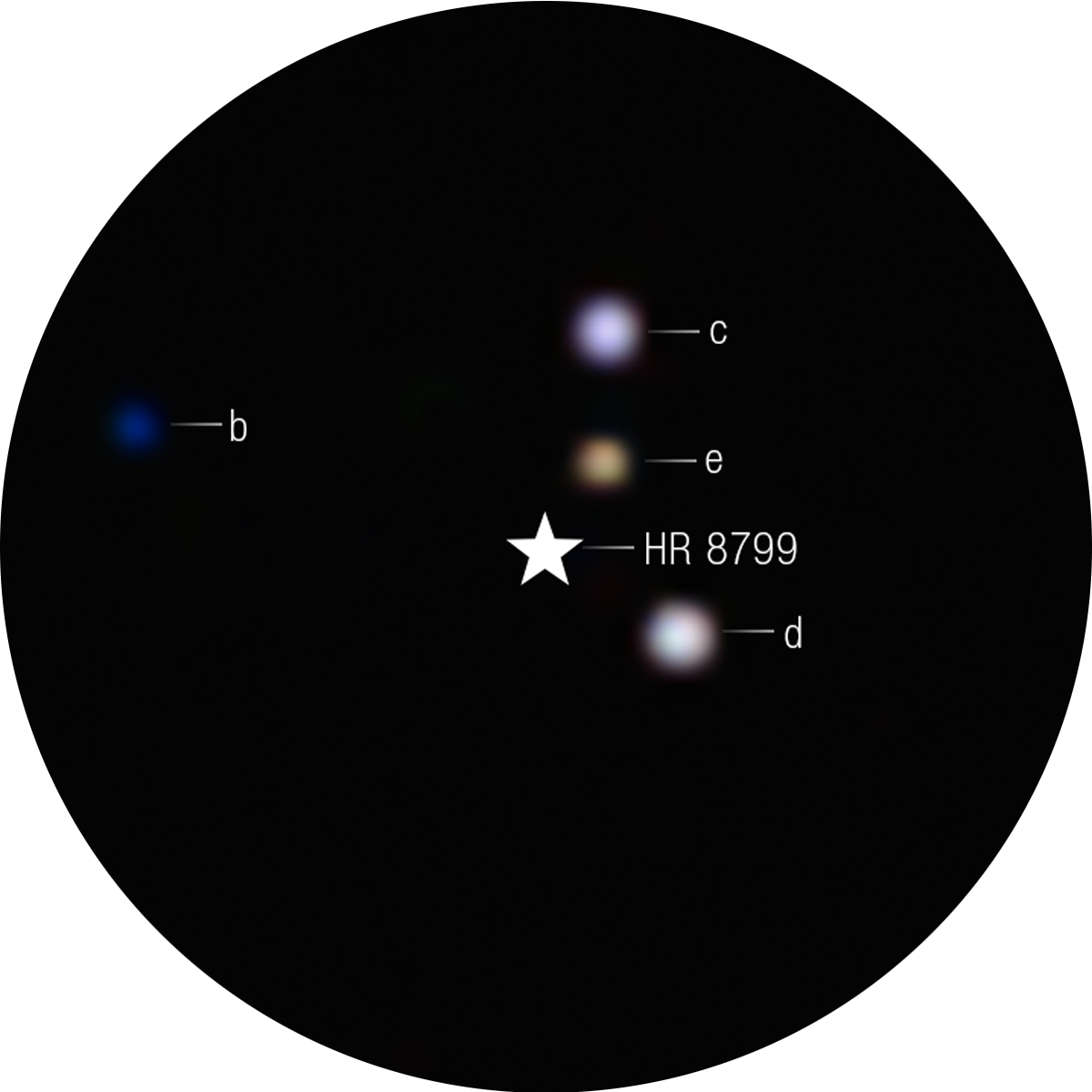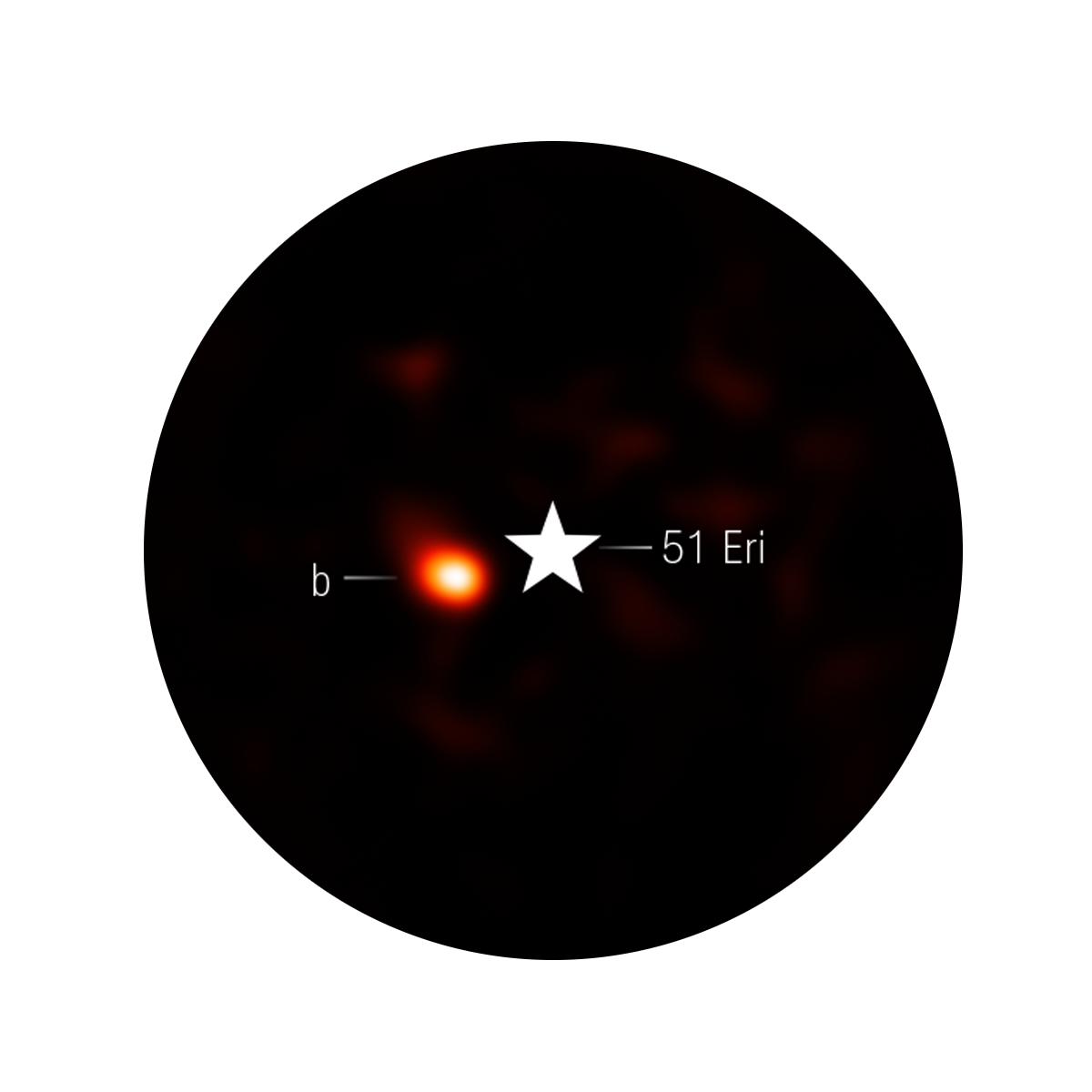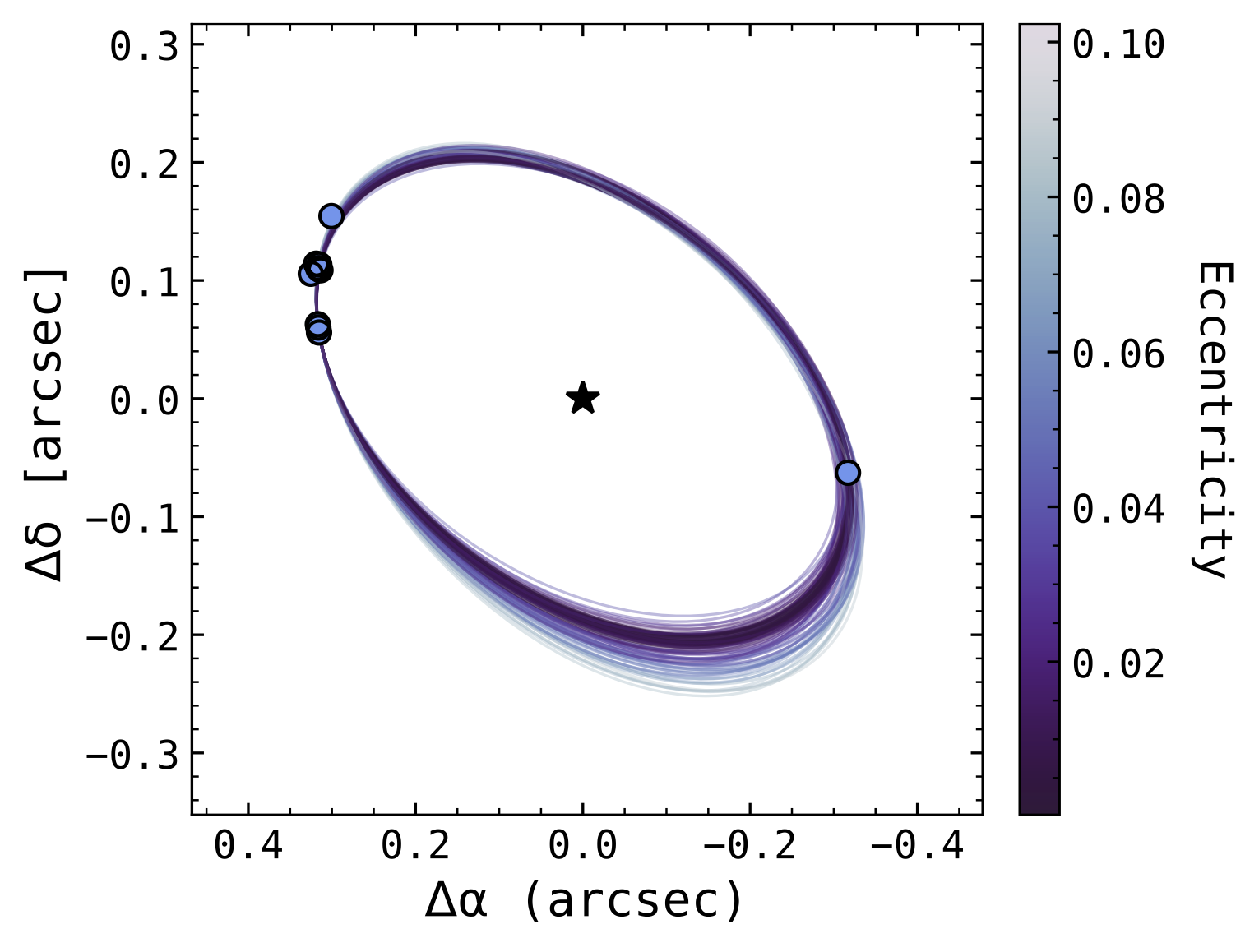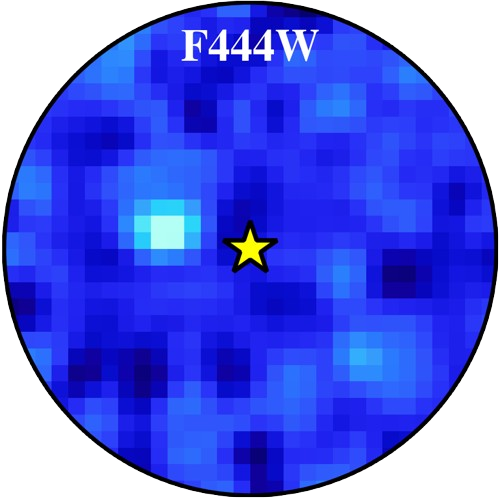Hello, I’m Will Balmer.
I am an astronomer, science journalist, and author. I use big telescopes on the ground and in space to study planets in distant solar systems. My research focuses on directly imaging exoplanets using coronagraphy and optical interferometry, to learn more about how planets form and place our own solar system in a galatic context. I am a Ph.D candidate in the Department of Physics and Astronomy at the Johns Hopkins University in Baltimore, MD. I am incredibly passionate about astronomy outreach, science writing, and mentorship. You can find my CV, links to my first author papers, and some of my talks and articles below.
- High contrast imaging 🌟
- Optical interferometry 💫
- Gas giant exoplanets 🪐
- Atmospheric modeling ☁️
- Accretion & variability ☄️
Ph.D. candidate in Astronomy, 2021-present
Johns Hopkins University
Bachelors of Arts cum laude in Astronomy and in Physics, 2017-2021
Amherst College
With fellow co-PI Daniella Bardalez Gagliuffi, I planned and took the first coronagraphic images of the nearby exoplanet 14 Herculis c, one of the coldest and oldest gas giants imaged to date. The planet orbits on a wide, elliptical path that is misaligned with the inner planet in the system, 14 Herculis b. This is a wildly different architecture compared to our own solar system, where all the (large) planets orbit in the same orbital plane, and are aligned with the Sun’s rotation axis. This indicates that the two planets in the 14 Herculis system underwent a gravitational tug of war at some point in their history, and that the outer planet was kicked onto its present orbit in a process called “planet-planet scattering.” The planet is a lot fainter in the 4.4 micron filter than we expected, based on how massive and old it is, so we believe that strong updrafts are cycling opaque gases from the planet’s warm interior into its upper atmosphere, where some of its outbound light is blocked from our view. You can read our press release here. The paper was published in the Astrophysical Journal Letters, and you can find a pre-print of the article here.
As a member of the JWST Telescope Scientist Team (JWST-TST), I used guaranteed time observations planned by our high contrast imaging group at STScI to reveal the atmospheres of the iconic HR 8799 planets at never-before-seen wavelengths of light. The data is described in a first author paper I published in March 2025. The paper had a press release, found here. This result validates the findings of our ExoGRAVITY collaboration paper on the system, that the four gas giants in the HR 8799 system appear to be metal rich compared to their host star. This places fascinating constraints on the timing of their formation and their accretion history. In order to block the light from the bright host star and reveal these faint planets, we used a novel mode of the Near Infrared Camera (NIRCam) coronagraph, placing all the observations at the narrowest end of the underutilized wedge shaped mask.
In particular, our JWST observations show clear carbon dioxide absorption (CO2) in the spectrum of each planet in the HR 8799 system, which, compared to the clear carbon monoxide absorption (CO), gives us a handle on the relative enrichment of heavy elements in these planet’s atmospheres. We also observed the young, Jupiter-mass planet 51 Eri b. Despite how faint this planet is, we were able to detect it at a wavelength of 4.1 microns, which tells us indirectly about how hot the planet is, and how much CO2 is in its atmosphere. These measurements place constraints on the accretion history of these planets, in particular, indicating an early accretion of solids. We hope to apply these techniques to characterize more systems in the near future. I was awarded about 23 hours of additional JWST observing time to repeat this experiment in four additional directly imaged systems. That means four more beautiful images of giant exoplanets from JWST coming soon!
One 8 meter telescope is fine, but why not use four 8 meter telescopes at the same time? I use the K-band (2-2.5 micron) beam combining instrument GRAVITY at the Very Large Telescope Interferometer (VLTI) to study exoplanets and brown dwarfs as a member of the ExoGRAVITY collaboration. Using optical interferometry, we make very precise measurements of the orbital motion of giant planets, and collect spectra containing information about the abundances of carbon and oxygen bearing molecules in their atmospheres. I used these techniques to study the orbit, composition, and formation of one of the lowest mass exoplanets directly imaged from the ground, AF Leporis b. In my first author paper on the system, I showed that the planet’s orbit is effectively circular, and the planet’s atmosphere is cloudy and strongly vertically mixed. I also evaluated some degeneracies in the Bayesian modeling of the atmosphere, showing why previous studies had overestimated the planet’s metallicity (hint: the fault is in our simplistic models of clouds and their impact on the planet’s spectrum). This ensemble of results shows that the current day properties of AF Lep b are consistent with predictions made by the core accretion formation model, and more generally, formation within a protoplanetary disk.
I recently co-led a JWST Cycle 2 Director’s Discretionary program with Kyle Franson to characterize the atmosphere and thermal budget of AF Lep b with JWST/NIRCam imaging. With a separation from its bright host star of only 0.3 arcseconds (about 2λ/D, and 7% coronagraphic throughput) at the time of observation, the planet was particularly challenging to recover with JWST. Nevertheless, in observations I planned based on a feasibility study I led, we successfully recovered the planet at a high significance at its expected location. I am second author on an excellent paper by Kyle describing the exciting evidence for disequilibrium chemistry and enhanced metallicity, which we were able to learn by detecting the planet in these wavelengths.
Outreach Activites
Observatory Fellow, Maryland Space Grant Consortium | September 2022 - May 2023
Volunteer, Maryland Space Grant Observatory | May 2023 - present
Penpal, Letters to a Pre-Scientist | February 2025 - present
Volunteer, Youth in Engineering and Astronomy, STScI | October 2022 - September 2023
Author, Astrobites, the astro-ph reader’s digest | December 2021 - present
Author, personal blog | June 2018 – present
Astronomy Editor, Amherst STEM Network | October 2019 – May 2021
A selection of articles written about research I’m involved in; articles on a repeated topic typically indicate I provided additional comments for that particular article. Last updated 2025/03/27.
“Scientists used JWST instruments ‘wrong’ on purpose to capture direct images of exoplanets,” by Victoria Corless for Space.com.
“Webb telescope directly observes exoplanet CO2 for first time,” by Daniel Lawler for AFP, available on phys.org.
“El supertelescopio James Webb logra sus primeras imágenes directas de dióxido de carbono fuera de nuestro sistema solar,” by Teresa Guerrero for El Mundo.
“NASA’s Webb Images Young, Giant Exoplanets, Detects Carbon Dioxide,” by Roberto Molar Candanosa for JHU, and Hannah Braun for STScI and NASA.
“UT Astronomers Race To Capture Image of Exoplanet Near Star,” McDonald Observatory Press Release, October 9, 2024
“Newfound alien planet has nuclear fusion going in its core,” by Andrew Jones for Space.com
Articles I’ve written. Last updated 2025/03/13.
“How astronomers search for life on exoplanets” by William Balmer for The Planetary Society, Oct 11, 2023
“Where do Hot-Jupiters come from? RV population statistics suggests planet-planet interactions” by William Balmer for Astrobites, Oct 11, 2023
“Advisee to Advising (your first research student)” by William Balmer for Astrobites, Jul 28, 2023
“Did early Earth order delivery, or did it make its oceans at home?” by William Balmer for Astrobites, Apr 27, 2023
“Newly discovered planet AF Lep is leading its star astray” by William Balmer for Astrobites, Feb 25, 2023
“Dancing with the (Six) Stars, or, a 200 year story of the Castor system” by William Balmer for Astrobites, Nov 7, 2022
“JWST’s carbon dioxide discovery is good news for Earth-like worlds” by William Balmer for The Planetary Society, Sep 27, 2022
“Fly-bye, Baby: a review of the impact of stellar flybys on protoplanetary disks” by William Balmer for Astrobites, Aug 23, 2022
“What might JWST reveal about TRAPPIST-1?” by William Balmer for The Planetary Society, June 9th, 2022.
“Flipping the table: inferring planet formation from atmospheric composition” by William Balmer for Astrobites, May 6th, 2022.
“Herald of the Change: A microlensing Jupiter-analogue spotted in K2 data portends Roman’s yield of new planets” by William Balmer for Astrobites, April 11th, 2022.
“Peek-a-boo! Forming Moons Revealed Around a Baby Planet” by William Balmer for Astrobites, February 9th, 2022.
“The Orbit and Growth of HD 142527B” by William Balmer for Astrobites, March 14th, 2021.
“Planetary cradles: UMass/FCAD colloquium speaker Feng Long presents ALMA view of early solar systems” by William Balmer in The Amherst STEM Network Magazine, Issue 1.3, Fall 2020.
“What makes a planet? Daniela Bardalez Gagliuffi seeks answers in the lowest mass stars” by William Balmer in The Amherst STEM Network Magazine, Issue 1.1, Spring 2020.
